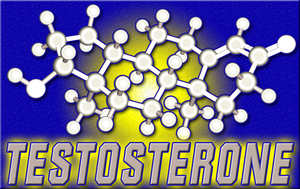Introduction
Testosterone enanthate, a widely used anabolic steroid among American males, has been a subject of interest due to its potential effects on liver function. As the use of such compounds continues to rise, understanding their impact on hepatotoxicity becomes crucial. This article delves into the influence of testosterone enanthate on liver function and hepatotoxicity, providing a detailed analysis for American men who may be considering or currently using this substance.
Overview of Testosterone Enanthate
Testosterone enanthate is an injectable form of testosterone, commonly used for hormone replacement therapy and bodybuilding. It is favored for its long-acting nature, which allows for less frequent dosing. However, its impact on the liver, a vital organ responsible for detoxification and metabolism, remains a significant concern.
Liver Function and Hepatotoxicity
The liver plays a pivotal role in metabolizing drugs and hormones, including testosterone enanthate. Hepatotoxicity, or liver toxicity, refers to the damage inflicted on the liver by various substances. While oral anabolic steroids are notorious for their hepatotoxic effects, the impact of injectable forms like testosterone enanthate is less clear and warrants further exploration.
Research Findings on Testosterone Enanthate and Liver Function
Several studies have investigated the effects of testosterone enanthate on liver function in American males. A notable study published in the Journal of Hepatology found that while testosterone enanthate does not exhibit the same level of hepatotoxicity as oral anabolic steroids, it can still cause mild elevations in liver enzymes such as alanine aminotransferase (ALT) and aspartate aminotransferase (AST). These enzymes are markers of liver stress and potential damage.
Another study conducted at a major American university examined the long-term effects of testosterone enanthate on liver function in a cohort of male athletes. The results indicated that prolonged use of the steroid was associated with a slight increase in liver enzyme levels, but these changes were generally reversible upon cessation of the drug. This suggests that while testosterone enanthate may pose some risk to liver health, the effects are typically not severe and can be mitigated with proper monitoring and discontinuation.
Clinical Implications for American Males
For American men using testosterone enanthate, regular monitoring of liver function is essential. Healthcare providers should conduct routine blood tests to assess liver enzyme levels and other markers of liver health. If elevations are detected, adjustments to the dosage or discontinuation of the steroid may be necessary to prevent further liver damage.
It is also important for users to be aware of symptoms of liver dysfunction, such as jaundice, abdominal pain, and fatigue. Prompt medical attention should be sought if these symptoms arise, as early intervention can prevent more serious complications.
Mitigating Hepatotoxicity
To minimize the risk of hepatotoxicity, American males using testosterone enanthate should adhere to several best practices. These include using the lowest effective dose, cycling the steroid to allow for periods of recovery, and avoiding the concurrent use of other hepatotoxic substances, such as alcohol and certain medications.
Additionally, maintaining a healthy lifestyle with a balanced diet and regular exercise can support liver health. Supplements such as milk thistle, which has been shown to have hepatoprotective properties, may also be beneficial, although their efficacy in this context requires further research.
Conclusion
In conclusion, while testosterone enanthate does pose some risk to liver health in American males, the hepatotoxic effects are generally milder compared to oral anabolic steroids. Regular monitoring of liver function, adherence to safe usage practices, and a healthy lifestyle can help mitigate these risks. As the use of testosterone enanthate continues to be prevalent among American men, ongoing research and education are essential to ensure its safe and responsible use.
Contact Us Today For A Free Consultation

- Testosterone Enanthate: Enhancing Athletic Performance and Associated Risks in the US [Last Updated On: February 18th, 2025] [Originally Added On: February 18th, 2025]
- Long-Term Health Risks of Testosterone Enanthate Use in American Men [Last Updated On: March 17th, 2025] [Originally Added On: March 17th, 2025]
- Testosterone Enanthate: Benefits, Risks, and Management for Low Testosterone Treatment [Last Updated On: March 18th, 2025] [Originally Added On: March 18th, 2025]
- Testosterone Enanthate's Impact on Sleep Quality in American Males: A Comprehensive Analysis [Last Updated On: March 19th, 2025] [Originally Added On: March 19th, 2025]
- Testosterone Enanthate: A Promising Treatment for Sexual Dysfunction in American Males [Last Updated On: March 19th, 2025] [Originally Added On: March 19th, 2025]
- Testosterone Enanthate: Dispelling Myths and Understanding Facts for American Men [Last Updated On: March 19th, 2025] [Originally Added On: March 19th, 2025]
- Testosterone Enanthate: Enhancing Muscle, Reducing Fat for Weight Management in American Men [Last Updated On: March 20th, 2025] [Originally Added On: March 20th, 2025]
- Testosterone Enanthate: A Promising Treatment for Depression in American Men [Last Updated On: March 20th, 2025] [Originally Added On: March 20th, 2025]
- Testosterone Enanthate: Enhancing Cognitive Function in Aging American Men [Last Updated On: March 20th, 2025] [Originally Added On: March 20th, 2025]
- Testosterone Enanthate: Benefits, Prostate Risks, and Monitoring for American Men [Last Updated On: March 20th, 2025] [Originally Added On: March 20th, 2025]
- Testosterone Enanthate: A Promising Therapy for Chronic Pain in American Males [Last Updated On: March 21st, 2025] [Originally Added On: March 21st, 2025]
- Testosterone Enanthate Cycle: Enhancing Performance and Managing Risks in Athletes [Last Updated On: March 21st, 2025] [Originally Added On: March 21st, 2025]
- Testosterone Enanthate: A Promising Treatment for Osteoporosis in American Men [Last Updated On: March 21st, 2025] [Originally Added On: March 21st, 2025]
- Testosterone Enanthate Therapy: Personalization, Monitoring, and Lifestyle Integration for American Men [Last Updated On: March 21st, 2025] [Originally Added On: March 21st, 2025]
- Testosterone Enanthate's Impact on Blood Sugar Levels in American Men: A Review [Last Updated On: March 22nd, 2025] [Originally Added On: March 22nd, 2025]
- Testosterone Enanthate Withdrawal: Symptoms and Management Strategies for American Males [Last Updated On: March 22nd, 2025] [Originally Added On: March 22nd, 2025]
- Testosterone Enanthate's Impact on Male Fertility: Insights for American Patients [Last Updated On: March 23rd, 2025] [Originally Added On: March 23rd, 2025]
- Testosterone Enanthate: A Promising Therapy for Obesity in American Males [Last Updated On: March 23rd, 2025] [Originally Added On: March 23rd, 2025]
- Ethical Dilemmas of Testosterone Enanthate Use Among American Males: A Comprehensive Analysis [Last Updated On: March 23rd, 2025] [Originally Added On: March 23rd, 2025]
- Testosterone Enanthate Therapy: Enhancing Veteran Health and Vitality [Last Updated On: March 23rd, 2025] [Originally Added On: March 23rd, 2025]
- Testosterone Enanthate: Effects on Hair Growth and Loss in American Men [Last Updated On: March 24th, 2025] [Originally Added On: March 24th, 2025]
- Testosterone Enanthate's Impact on Mental Clarity in American Males: Benefits and Risks [Last Updated On: March 24th, 2025] [Originally Added On: March 24th, 2025]
- Testosterone Enanthate's Impact on Appetite and Digestion in American Males [Last Updated On: March 24th, 2025] [Originally Added On: March 24th, 2025]
- Testosterone Enanthate: Enhancing Emotional Well-being in American Males [Last Updated On: March 24th, 2025] [Originally Added On: March 24th, 2025]
- Testosterone Enanthate: A Potential New Treatment for Allergies in American Males [Last Updated On: March 24th, 2025] [Originally Added On: March 24th, 2025]
- Testosterone Enanthate: Enhancing Injury Recovery in American Male Athletes [Last Updated On: March 24th, 2025] [Originally Added On: March 24th, 2025]
- Testosterone Enanthate: Impacts on Joint Health in American Men [Last Updated On: March 25th, 2025] [Originally Added On: March 25th, 2025]
- Testosterone Enanthate: A Promising Treatment for Anemia in Hypogonadal American Men [Last Updated On: March 25th, 2025] [Originally Added On: March 25th, 2025]
- Testosterone Enanthate: Enhancing Immune Function in American Men - Benefits and Risks [Last Updated On: March 25th, 2025] [Originally Added On: March 25th, 2025]
- Testosterone Enanthate's Impact on Cardiovascular Endurance in American Men: Benefits and Risks [Last Updated On: March 25th, 2025] [Originally Added On: March 25th, 2025]
- Testosterone Enanthate: Cultural Perceptions and Masculinity in American Society [Last Updated On: March 25th, 2025] [Originally Added On: March 25th, 2025]
- Testosterone Enanthate: Combating Age-Related Decline in American Men [Last Updated On: March 25th, 2025] [Originally Added On: March 25th, 2025]
- Testosterone Enanthate: A Promising Solution for Muscle Wasting in American Men [Last Updated On: March 25th, 2025] [Originally Added On: March 25th, 2025]
- Testosterone Enanthate Therapy: Benefits, Process, and Risks for Men Over 50 [Last Updated On: March 25th, 2025] [Originally Added On: March 25th, 2025]
- Testosterone Enanthate: A Promising Stress Management Tool for American Men [Last Updated On: March 26th, 2025] [Originally Added On: March 26th, 2025]
- Testosterone Enanthate Boosts Skin Elasticity in American Males: Benefits and Risks [Last Updated On: March 26th, 2025] [Originally Added On: March 26th, 2025]
- Testosterone Enanthate: A Potential Treatment for Chronic Fatigue Syndrome in American Males [Last Updated On: March 26th, 2025] [Originally Added On: March 26th, 2025]
- Testosterone Enanthate: Enhancing Endurance in American Male Athletes - Benefits and Risks [Last Updated On: March 26th, 2025] [Originally Added On: March 26th, 2025]
- Testosterone Enanthate Therapy: Benefits, Limitations, and Management for American Men [Last Updated On: March 26th, 2025] [Originally Added On: March 26th, 2025]
- Testosterone Enanthate: Enhancing Muscle, Reducing Fat, Boosting Performance in American Males [Last Updated On: March 26th, 2025] [Originally Added On: March 26th, 2025]
- Testosterone Enanthate's Impact on Dental Health in American Males: Risks and Recommendations [Last Updated On: March 27th, 2025] [Originally Added On: March 27th, 2025]
- Testosterone Enanthate's Impact on Vision and Eye Health in American Males [Last Updated On: March 27th, 2025] [Originally Added On: March 27th, 2025]
- Testosterone Enanthate: Benefits, Costs, and Risks for American Males [Last Updated On: March 27th, 2025] [Originally Added On: March 27th, 2025]
- Optimizing Testosterone Enanthate Therapy: Dosage, Monitoring, and Lifestyle for American Males [Last Updated On: March 27th, 2025] [Originally Added On: March 27th, 2025]
- Testosterone Enanthate Therapy: Impacts on Life Expectancy and Health in American Men [Last Updated On: March 28th, 2025] [Originally Added On: March 28th, 2025]
- Testosterone Enanthate: Enhancing Post-Surgical Recovery in American Men [Last Updated On: March 28th, 2025] [Originally Added On: March 28th, 2025]
- Testosterone Enanthate: Enhancing Respiratory Function in American Men [Last Updated On: March 29th, 2025] [Originally Added On: March 29th, 2025]
- Testosterone Enanthate: A Promising Treatment for Autoimmune Disorders in American Males [Last Updated On: March 29th, 2025] [Originally Added On: March 29th, 2025]
- Testosterone Enanthate's Role in Managing Diabetes in American Men: Benefits and Considerations [Last Updated On: March 30th, 2025] [Originally Added On: March 30th, 2025]
- Testosterone Enanthate Therapy: Kidney Function Impact in American Males [Last Updated On: March 30th, 2025] [Originally Added On: March 30th, 2025]
- Testosterone Enanthate's Impact on Hearing Health in American Men: A Comprehensive Review [Last Updated On: March 30th, 2025] [Originally Added On: March 30th, 2025]
- Testosterone Enanthate's Impact on Liver Health in American Men: Risks and Monitoring [Last Updated On: April 1st, 2025] [Originally Added On: April 1st, 2025]
- Testosterone Enanthate: A Promising Therapy for Hypertension in American Males [Last Updated On: April 1st, 2025] [Originally Added On: April 1st, 2025]
- Testosterone Enanthate: Impacts on Male Reproductive Health and Fertility in America [Last Updated On: April 3rd, 2025] [Originally Added On: April 3rd, 2025]
- Testosterone Enanthate: A Potential Treatment for Gastrointestinal Disorders in American Males [Last Updated On: April 3rd, 2025] [Originally Added On: April 3rd, 2025]
- Testosterone Enanthate: Enhancing Neurological Health in American Men [Last Updated On: April 4th, 2025] [Originally Added On: April 4th, 2025]
- Testosterone Enanthate's Impact on Adrenal Health in American Males: A Comprehensive Analysis [Last Updated On: April 6th, 2025] [Originally Added On: April 6th, 2025]
- Testosterone Enanthate: Enhancing Muscle and Bone Health in American Men [Last Updated On: April 7th, 2025] [Originally Added On: April 7th, 2025]
- Testosterone Enanthate's Impact on Thyroid Function in American Men: A Comprehensive Analysis [Last Updated On: April 8th, 2025] [Originally Added On: April 8th, 2025]
- Testosterone Enanthate: Benefits, Risks, and Endocrine Impact in American Men [Last Updated On: April 9th, 2025] [Originally Added On: April 9th, 2025]
- Testosterone Enanthate's Impact on Immune Function in American Males: A Comprehensive Review [Last Updated On: April 9th, 2025] [Originally Added On: April 9th, 2025]
- Testosterone Enanthate: A Promising Therapy for Respiratory Disorders in American Men [Last Updated On: April 10th, 2025] [Originally Added On: April 10th, 2025]
- Testosterone Enanthate's Impact on Gastrointestinal Health in American Males [Last Updated On: April 11th, 2025] [Originally Added On: April 11th, 2025]
- Testosterone Enanthate's Impact on Cardiovascular Health in American Males: Risks and Benefits [Last Updated On: April 11th, 2025] [Originally Added On: April 11th, 2025]
- Testosterone Enanthate's Emerging Role in Dermatology for American Men: A Comprehensive Review [Last Updated On: April 12th, 2025] [Originally Added On: April 12th, 2025]
- Testosterone Enanthate Boosts Hematological Health in American Men: Benefits and Monitoring [Last Updated On: April 13th, 2025] [Originally Added On: April 13th, 2025]
- Testosterone Enanthate: A Promising Therapy for Metabolic Disorders in American Males [Last Updated On: April 13th, 2025] [Originally Added On: April 13th, 2025]
- Testosterone Enanthate: A Promising Therapy for Neurological Disorders in American Males [Last Updated On: April 14th, 2025] [Originally Added On: April 14th, 2025]
- Testosterone Enanthate: Enhancing Immune Function in American Men [Last Updated On: April 16th, 2025] [Originally Added On: April 16th, 2025]
- Testosterone Enanthate's Impact on Metabolic Health in American Males: Benefits and Risks [Last Updated On: April 16th, 2025] [Originally Added On: April 16th, 2025]
- Testosterone Enanthate's Impact on Cardiovascular Health in American Men: Benefits and Risks [Last Updated On: April 17th, 2025] [Originally Added On: April 17th, 2025]
- Testosterone Enanthate's Impact on Respiratory Health in American Males: An Analysis [Last Updated On: April 17th, 2025] [Originally Added On: April 17th, 2025]
- Testosterone Enanthate: Potential Benefits for Musculoskeletal Disorders in American Men [Last Updated On: April 17th, 2025] [Originally Added On: April 17th, 2025]
- Testosterone Enanthate Therapy: Impacts and Management of Reproductive Health in Men [Last Updated On: April 19th, 2025] [Originally Added On: April 19th, 2025]
- Testosterone Enanthate: Key Role in Treating Hypogonadism and Enhancing Male Health [Last Updated On: April 19th, 2025] [Originally Added On: April 19th, 2025]
- Testosterone Enanthate's Impact on Skin Health in American Males: A Comprehensive Analysis [Last Updated On: April 19th, 2025] [Originally Added On: April 19th, 2025]
- Testosterone Enanthate: Potential Treatment for Hematological Disorders in American Men [Last Updated On: April 19th, 2025] [Originally Added On: April 19th, 2025]
- Testosterone Enanthate: Enhancing Gastrointestinal Health in American Men [Last Updated On: April 20th, 2025] [Originally Added On: April 20th, 2025]
- Testosterone Enanthate's Neurological Impact on American Males: Benefits and Risks [Last Updated On: April 20th, 2025] [Originally Added On: April 20th, 2025]
- Testosterone Enanthate: Effective Management of Low T in American Men [Last Updated On: April 22nd, 2025] [Originally Added On: April 22nd, 2025]
Word Count: 599




















